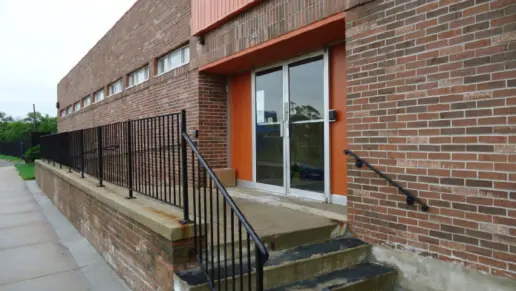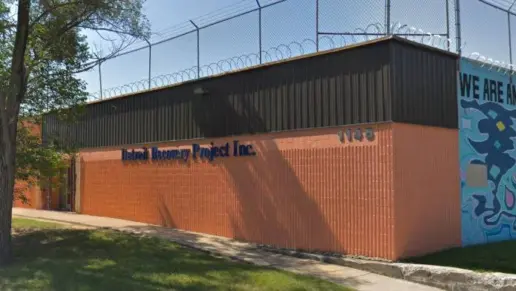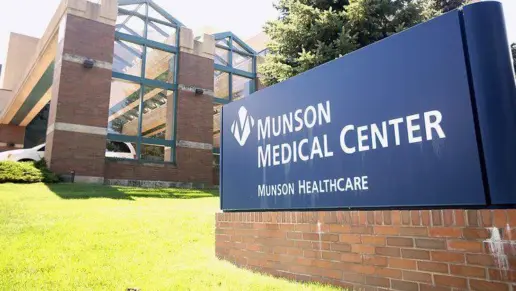Dawn Farm is so educated on addiction and this is why they are so successful in the ability to rehabilitate people. I have been to other detox before, never was I taken to AA meetings, never were there people allowed to come and sit to talk about recovery. Spera blossome ...
About Dawn Farm – Spera
Dawn Farm - Spera offers various substance use addiction treatment options across Ann Arbor and Ypsilanti in Washtenaw County, Michigan. This facility on West Huron Street in Ann Arbor specializes in social detoxification. Social detox means you won’t be prescribed any medication for withdrawal. It usually involves monitoring and assistance from peers or counselors rather than medical professionals. Emphasis is on providing you with a safe space to cope with withdrawal symptoms while receiving psychological and emotional support. Social detox is the way to go If you’re dealing with mild withdrawal symptoms requiring no intensive medical intervention.
This facility offers a conducive and supportive environment for detox with a focus on creating a sustainable recovery plan afterward. Volunteering, community involvement and peer relationships are at this program’s core. You’ll attend daily mutual aid meetings to familiarize yourself with the recovery community. Their skilled counselors then conduct initial assessment or evaluation. These counselors will also supervise your withdrawal, create an individualized treatment plan and facilitate group therapy. They’ll also help you develop sustainable plans for continuing recovery and ongoing support. If your withdrawal is medically risky they’ll collaborate with community providers or a local emergency department to ensure your detox is safe and comfy.
This detox program is free. Another cool thing is that all their programs integrate smoothly, which allows for ongoing communication between care personnel. This makes it easy to move clients between various levels of care within their network. Depending on your unique condition, your ongoing treatment options post detox may include inpatient treatment or an outpatient program. You may also have access to recovery support services like case management or sober housing. These services may be available within their network or another community provider.
Facility Overview
Latest Reviews
Rehab Score
Gallery
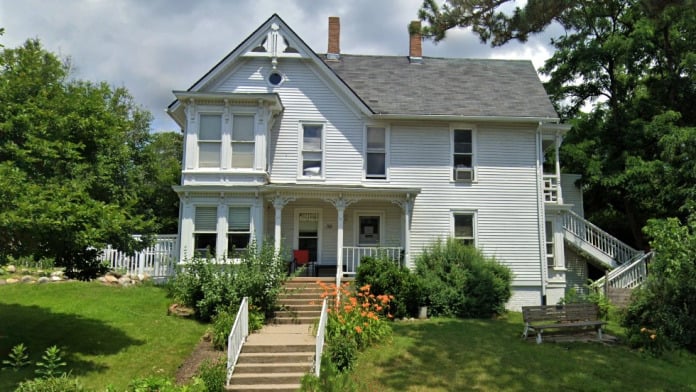
Location
Other Forms of Payment
Private insurance refers to any kind of healthcare coverage that isn't from the state or federal government. This includes individual and family plans offered by an employer or purchased from the Insurance Marketplace. Every plan will have different requirements and out of pocket costs so be sure to get the full details before you start treatment.
Self-pay involves paying for treatment out of your own pocket. You can use savings or credit, get a personal loan, or receive help from family and friends to fund your treatment. If you don't have insurance or your insurance plan doesn't cover a specific program, self-pay can help ensure you still get the care you need.
Financial aid can take many forms. Centers may have grants or scholarships available to clients who meet eligibility requirements. Programs that receive SAMHSA grants may have financial aid available for those who need treatment as well. Grants and scholarships can help you pai for treatment without having to repay.
Medicare is a federal program that provides health insurance for those 65 and older. It also serves people under 65 with chronic and disabling health challenges. To use Medicare for addiction treatment you need to find a program that accepts Medicare and is in network with your plan. Out of pocket costs and preauthorization requirements vary, so always check with your provider.
Military members, veterans, and eligible dependents have access to specific insurance programs that help them get the care they need. TRICARE and VA insurance can help you access low cost or no cost addiction and mental health treatment. Programs that accept military insurance often have targeted treatment focused on the unique challenges military members, veterans, and their families face.
Medicaid is a state based program that helps lower-income individuals and families pay for healthcare. Medicaid covers addiction treatment so those enrolled can use their coverage to pay for rehab. When a program accepts Medicaid the client often pays very little or nothing out of their own pocket.
Addiction Treatments
Levels of Care
Treatments
The goal of treatment for alcoholism is abstinence. Those with poor social support, poor motivation, or psychiatric disorders tend to relapse within a few years of treatment. For these people, success is measured by longer periods of abstinence, reduced use of alcohol, better health, and improved social functioning. Recovery and Maintenance are usually based on 12 step programs and AA meetings.
Drug rehab in Michigan provides personalized treatment to help individuals break this cycle and regain control of their lives. Treatment methods are used in various levels of care, including inpatient rehab, partial hospitalization programs, intensive outpatient programs, and standard outpatient treatment.
Many of those suffering from addiction also suffer from mental or emotional illnesses like schizophrenia, bipolar disorder, depression, or anxiety disorders. Rehab and other substance abuse facilities treating those with a dual diagnosis or co-occurring disorder administer psychiatric treatment to address the person's mental health issue in addition to drug and alcohol rehabilitation.
A combined mental health and substance abuse rehab has the staff and resources available to handle individuals with both mental health and substance abuse issues. It can be challenging to determine where a specific symptom stems from (a mental health issue or an issue related to substance abuse), so mental health and substance abuse professionals are helpful in detangling symptoms and keeping treatment on track.
Opioid rehabs specialize in supporting those recovering from opioid addiction. They treat those suffering from addiction to illegal opioids like heroin, as well as prescription drugs like oxycodone. These centers typically combine both physical as well as mental and emotional support to help stop addiction. Physical support often includes medical detox and subsequent medical support (including medication), and mental support includes in-depth therapy to address the underlying causes of addiction.
Programs




Clinical Services
Cognitive Behavioral Therapy (CBT) is a therapy modality that focuses on the relationship between one's thoughts, feelings, and behaviors. It is used to establish and allow for healthy responses to thoughts and feelings (instead of unhealthy responses, like using drugs or alcohol). CBT has been proven effective for recovering addicts of all kinds, and is used to strengthen a patient's own self-awareness and ability to self-regulate. CBT allows individuals to monitor their own emotional state, become more adept at communicating with others, and manage stress without needing to engage in substance abuse.
Dialectical Behavior Therapy (DBT) is a modified form of Cognitive Behavioral Therapy (CBT), a treatment designed to help people understand and ultimately affect the relationship between their thoughts, feelings, and behaviors. DBT is often used for individuals who struggle with self-harm behaviors, such as self-mutilation (cutting) and suicidal thoughts, urges, or attempts. It has been proven clinically effective for those who struggle with out-of-control emotions and mental health illnesses like Borderline Personality Disorder.
Group therapy is any therapeutic work that happens in a group (not one-on-one). Several group therapy options are offered that are designed to help clients with varying needs, levels of motivation and intensity of substance use problems. Groups range in duration from 8 to 48 weeks depending upon client needs and preferences. Discovery groups – These groups are motivational in nature and are designed for clients that have not been clearly identified as an addict or alcoholic. Recovery groups – Designed for clients who are clearly identified as substance dependent. Objectives include educating clients about the processes of addiction and recovery, the fun- damentals of AA and 12 step recovery and developing and implementing a recovery plan.
In individual therapy, a patient meets one-on-one with a trained psychologist or counselor. Individual therapy is offered independently or in addition to group therapy. The appropriate duration, intensity and direction of therapy is determined on an individual basis.
Motivational Interviewing (MI) is a clinical approach to helping people with substance abuse issues and other conditions shift behavior in positive ways. It is more goal-oriented than traditional psychotherapy, as MI counselors directly attempt to get clients to consider making behavioral change (rather than wait for them to come to conclusions themselves). Its primary purpose is to resolve ambivalence and help clients become able to make healthy choices freely.
Trauma therapy addresses traumatic incidents from a client's past that are likely affecting their present-day experience. Trauma is often one of the primary triggers and potential causes of addiction, and can stem from child sexual abuse, domestic violence, having a parent with a mental illness, losing one or both parents at a young age, teenage or adult sexual assault, or any number of other factors. The purpose of trauma therapy is to allow a patient to process trauma and move through and past it, with the help of trained and compassionate mental health professionals.
EMDR is a therapeutic modality originally developed to help process trauma. In an EMDR session, a patient is prompted to undergo eye movements that mimic those of REM sleep. Dawn Farm provides clients with trauma symptoms access to clinical specialists trained in eye movement desensitization and reprocessing (EMDR) therapy. Clinicians practicing EMDR at Dawn Farm have completed EMDR Institute approved training in EMDR, and have received clinical consultation by EMDR Institute approved trainers.
Family Matters is a free ongoing program providing education and support for loved ones of addicts and alcoholics. Participating in Dawn Farm’s Family Matters group can make a powerful contribution to the process of recovery and of rebuilding relationships. You can take part in Dawn Farm’s Family Matters group even if your loved one is not currently in treatment. Topics include: Addiction 101; Treatment & 12 Steps; Relapse & Recovery; Communication; Family Dynamics; Boundaries & Codependency.
Life skills trainings involve all the skills a person must have in order to function successfully in the world. These include time management, career guidance, money management, and effective communication. Truly successful addiction recovery is based on the ability to not only live substance-free, but to thrive. Life skills teaches the practical necessities of functioning in society, which sets clients up for success in life, and therefore sobriety.
Creativity is inherently healing, and can help those in recovery express thoughts or feelings they might not otherwise be able to. Creative arts therapy can include music, poetry/writing, painting, sculpting, dance, theater, sandplay, and more. Unlike traditional art, the final product matters far less than the experience of creation and expression itself.
Experiential therapy is a form of therapy in which clients are encouraged to surface and work through subconscious issues by engaging in real-time experiences. Experiential therapy departs from traditional talk therapy by involving the body, and having clients engage in activities, movements, and physical and emotional expression. This can involve role-play or using props (which can include other people). Experiential therapy can help people process trauma, memories, and emotion quickly, deeply, and in a lasting fashion, leading to substantial and impactful healing.
Nicotine Replacement Therapy (NRT) is a way of getting nicotine into the bloodstream without smoking. It uses products that supply low doses of nicotine to help people stop smoking. The goal of therapy is to cut down on cravings for nicotine and ease the symptoms of nicotine withdrawal.
Amenities
-
Private Transportation
-
Gym
-
Yoga Studio
-
Residential Setting
-
Private Rooms
-
Hiking
-
Mountain Views
-
Gardens
-
Walking Trails
Staff & Accreditations
Staff

President
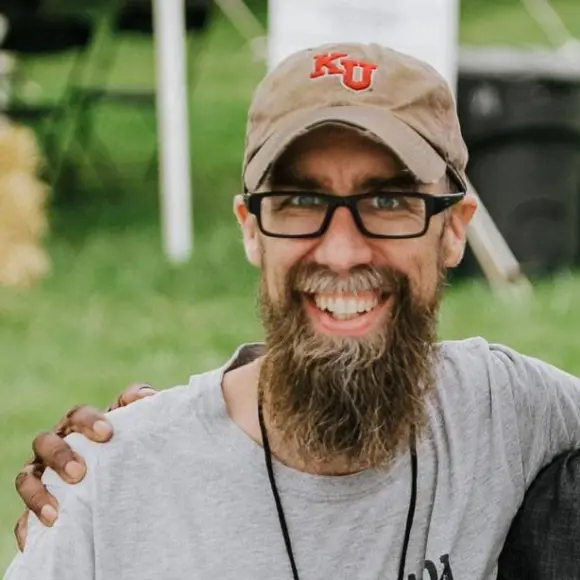
Clinical Director

Development Director

Project Manager
Accreditations

The Substance Abuse and Mental Health Services Administration (SAMHSA) is a branch of the U.S. Department of Health and Human Services. Established in 1992 by congress, SAMHSA's mission is to reduce the impact of substance abuse and mental illness on American's communities.
SAMHSA Listed: Yes

The Commission on Accreditation of Rehabilitation Facilities (CARF) is a non-profit organization that specifically accredits rehab organizations. Founded in 1966, CARF's, mission is to help service providers like rehab facilities maintain high standards of care.
CARF Accreditation: Yes
Accreditation Number: 22918

State Licenses are permits issued by government agencies that allow rehab organizations to conduct business legally within a certain geographical area. Typically, the kind of program a rehab facility offers, along with its physical location, determines which licenses are required to operate legally.
State License: Michigan
License Number: SA0810221
Contact Information
502 West Huron Street
Ann Arbor, MI 48104
